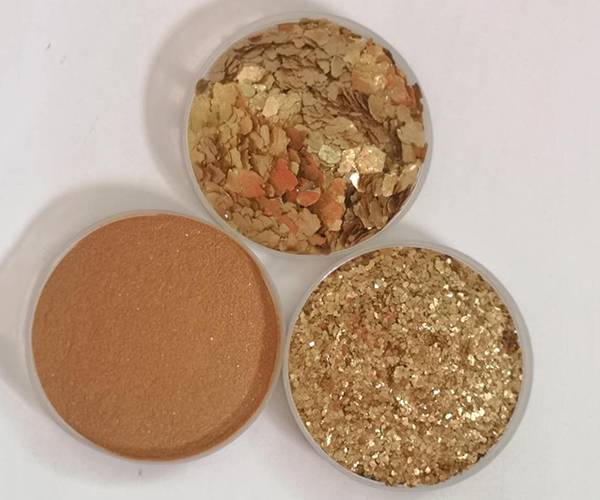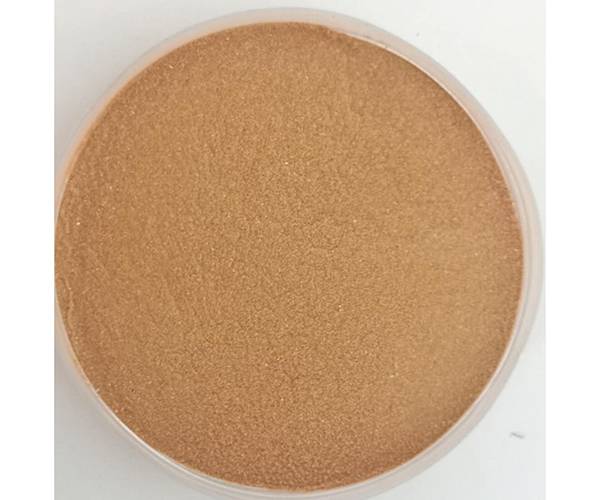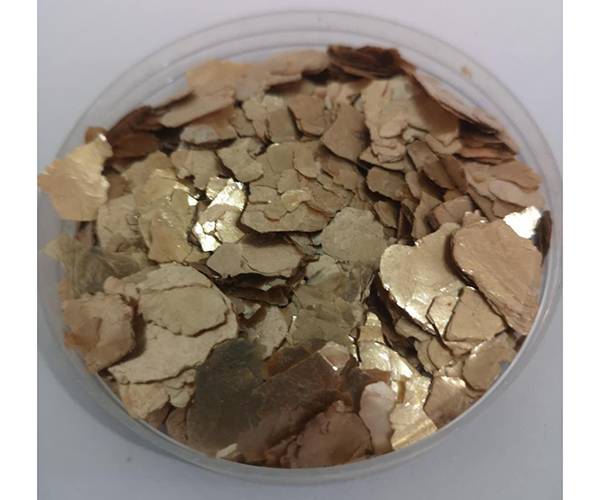In the evolving high-performance materials sector, Calcined Mica/Dehydrated Mica is gaining prominence due to its excellence in thermal stability, dielectric properties, and chemical durability. As industry demands for robust and specialized insulative materials surge—spanning petrochemical, metallurgy, water supply, electronics, and beyond—understanding key aspects of Calcined Mica/Dehydrated Mica is crucial for stakeholders and buyers.

Industry Overview & Trends
The global demand for Calcined Mica/Dehydrated Mica is projected to reach USD 780 million by 2028 (source: MarketsandMarkets), with a CAGR of 3.5% from 2023 onward. Key drivers include the upgrade of insulating components in high-demand sectors, a growing emphasis on eco-friendly industrial materials, and the expansion of emerging power technologies.
- Petrochemical and metallurgical industries now account for over 38% of deployments globally.
- Continuous investment in R&D is accelerating new dehydration and surface modification processes for enhanced product customizability and reliability.
- Major industry certifications (ISO9001, ANSI/ASTM, IEC) are now standard in supplier requirements, ensuring strict quality and safety compliance worldwide.

What Is Calcined Mica/Dehydrated Mica?
Calcined Mica/Dehydrated Mica is a technically enhanced form of mica obtained by thermal treatment (calcination) to eliminate hydroxyl (–OH) groups and trace water. This process boosts the mica's purity, flakiness, dielectric insulation, and thermal shock resistance. Typical forms include flakes, powder, and custom-shaped segments designed for use in insulation, gaskets, seals, paints, electronics, and advanced composites.
Main features:
- High dielectric strength & heat resistance (stable up to 1000°C)
- Excellent chemical stability (acid/alkali resistant)
- Low water absorption & moisture resistance
- Non-toxic, asbestos-free, eco-safe

Manufacturing Process of Calcined Mica/Dehydrated Mica
Step-by-Step Process Flow:
Selection of high-purity muscovite/phlogopite, mechanical/chemical removal of impurities
Thermal treatment at 800–900°C in rotary kilns to remove structural water
Mechanical crushing, air classification, and particle size sorting
Surface treatment (silanization, resin coating, etc.) and custom gaskets or segments fabrication
Strict dielectric loss, breakdown voltage, and chemical durability tests to meet ISO/IEC/ANSI standards
Anti-static, moisture-proof packaging; international delivery compliance
Manufacturing Video Illustration: Click to watch Calcined Mica/Dehydrated Mica production (sample reference)
Technical Specifications & Industry Standards
| Parameter | Calcined Mica/Dehydrated Mica (Typical) | Industry Standard/Method |
|---|---|---|
| Dielectric Strength | ≥ 20 kV/mm | IEC 60243/ASTM D149 |
| Thermal Stability | Stable up to 1000°C | ISO 3248 |
| Moisture Content | < 0.8% | ISO 787-2 |
| Chemical Resistance | Very high (Acid/Alkali proof) | ASTM C650 |
| Particle Size Range | 10 μm – 2 mm (customizable) | ISO 3310-1 |
| Apparent Density | 2.8–3.0 g/cm³ | ISO 787-11 |
| Loss on Ignition | < 1.1% | ASTM D7348 |
Calcined Mica/Dehydrated Mica vs. Key Competitors
| Attribute | Calcined Mica/Dehydrated Mica | Phlogopite Mica | Glass Fiber | Ceramic Gasket |
|---|---|---|---|---|
| Dielectric Strength (kV/mm) | 20–25 | 15–20 | 8–12 | 10–12 |
| Max Operating Temp (°C) | 1000 | 900 | 450 | 1300 |
| Chemical Resistance | Excellent | Good | Fair | Excellent |
| Moisture Absorption (%) | <0.8 | 1.0 | 2.1 | 0.5 |
| Flexibility | Good | Good | Moderate | Poor |
| Certifications | ISO, ANSI, IEC | ISO, IEC | ISO | FDA, ISO |
| Customization | Highly Customizable | Moderate | Few Options | Limited |

Custom Solutions & Service Workflow
- Specification Consultation: Experienced engineers analyze client drawings, application scenarios, and propose optimized Calcined Mica/Dehydrated Mica grades (particle/flake size, chemistry, treatment, etc.).
- Sample Preparation & Verification: Labs provide prototype gaskets, shaped sheets, or powders for performance validation.
- Batch Customization: Support for custom thickness, density, surface treatment (resin-bonding, anti-friction, etc.), and cuts/segments per international tolerances.
- QA & Certification: Each batch tested (random and full) for ISO9001, ANSI/ASTM, and IEC standard compliance. Full traceable reports supplied.
- Global Logistics: Sea/air shipping, complete export documentation, REACH/SVHC/ECHA compliance as needed.
Application Scenarios & Case Studies
1. Petrochemical Pipeline Insulation
Challenge: Severe heat, high pressure steam, and corrosive fluids.Solution: Custom Calcined Mica/Dehydrated Mica insulating gaskets, certified to IEC 60243 standard.
Result: 42% improvement in equipment lifetime, reduced leaks by 23%, zero insulation failures in 18 months (Source: China Petrochemical Engineering Report, 2022).
2. Metallurgical Furnace Lining
Requirement: Thermal shock resistance and electrical isolation during alloy smelting.Solution: Calcined mica sheets (1.5mm), loss-on-ignition <1.1%, delivered pre-cut to ISO 3310-1 tolerances.
Feedback: “By far the best high-temp safe insulator in our 900°C steel treatment lines.” – Technical Manager, Baosteel (2023).
3. Water Supply (DN600-2500) Pipeline Gaskets
Details: Municipal water pipeline joints require elastomer-insulated, non-degrading gaskets.Impact: Calcined Mica/Dehydrated Mica composites reduced annual maintenance from 12 times to 4 (case: Qingdao Water Authority, 2023).
4. Electronics & Renewable Energy
Scenario: High-voltage PCB spacers, busbar insulation, battery module construction.Benefits: Ultra-low dielectric loss (<0.06), ultra-flat surfaces, customizable thicknesses, ISO9001 audit passed.
Case: “We import 54 tons annually – no regulatory quality alerts since 2020.” (EU-based energy storage OEM).
5. OEM Custom-Engineered Seals
Overview: Support for automotive, aerospace, and chemical plants – co-branded with top OEMs, strict ANSI and UL test passed.Industry Certifications & Quality Assurance
- ISO 9001:2015 Quality Management System certified
- ANSI/IEC/ASTM relevant product certifications
- SVHC, REACH, RoHS, and non-asbestos material conformity
- Partnered with industry leaders (TOP3 in APAC, EU, US)
Service record: Over 15 years in the global market | 2,100,000+ end-user units delivered | 120+ international clients | 100% on-time delivery across three years.
Professional FAQ: Calcined Mica/Dehydrated Mica
Order Fulfillment & Trust Commitments
- Lead Time: Standard 7–21 working days per batch (custom/large orders negotiable)
- Warranty: 14–60 month product warranty based on application scenario
- Support: 24/7 technical support, process consultancy, global door-to-door logistics
- Documentation: All quality, compliance, and customs documents provided (ISO/IEC/ASTM certificates included)
Summary: Why Choose Calcined Mica/Dehydrated Mica?
- Calcined Mica/Dehydrated Mica delivers unmatched insulation, temperature resistance, and longevity for demanding installations, outclassing natural mica and synthetics in crucial metrics.
- Best fit for petrochemical, energy, electronics, and fluid/gas sealing applications seeking zero-asbestos, eco-compliant performance materials.
- Fully customizable, certified, and backed by global application cases and authoritative industry test results.
For technical consultations, sample requests, or custom development of Calcined Mica/Dehydrated Mica, visit KeHuiMica: https://www.kehuimica.com/dehydrated-mica.html
• MarketsandMarkets, “Mica Market Size and Outlook 2024,” Link
• ISO 3248, IEC 60243 Technical Standards
• Materials Science Forum, "Effect of Calcined Mica on High Temp Sealing," Scientific.Net
• China Chemical News: Industrial Test Reports (2022-2023)
• Chem.Info Industry Forum, 2024 Forum Link
-
The Versatile World of Phlogopite Mica: Properties, Forms, and ApplicationsNewsJul.14,2025
-
The Versatile Applications of Calcined Mica: From Decoration to Industrial UseNewsJul.14,2025
-
The Role of Muscovite Mica in Industrial Insulation MaterialsNewsJul.14,2025
-
The Benefits of Using Expanded Clay Pebbles in Hydroponics and Soil GardeningNewsJul.14,2025
-
Innovative Applications of Mica Flake in Paints and CoatingsNewsJul.14,2025
-
Gardening Expanded Clay Usage: A Complete GuideNewsJul.14,2025
-
The Use of Natural Mica Powder in Skincare ProductsNewsJun.11,2025








